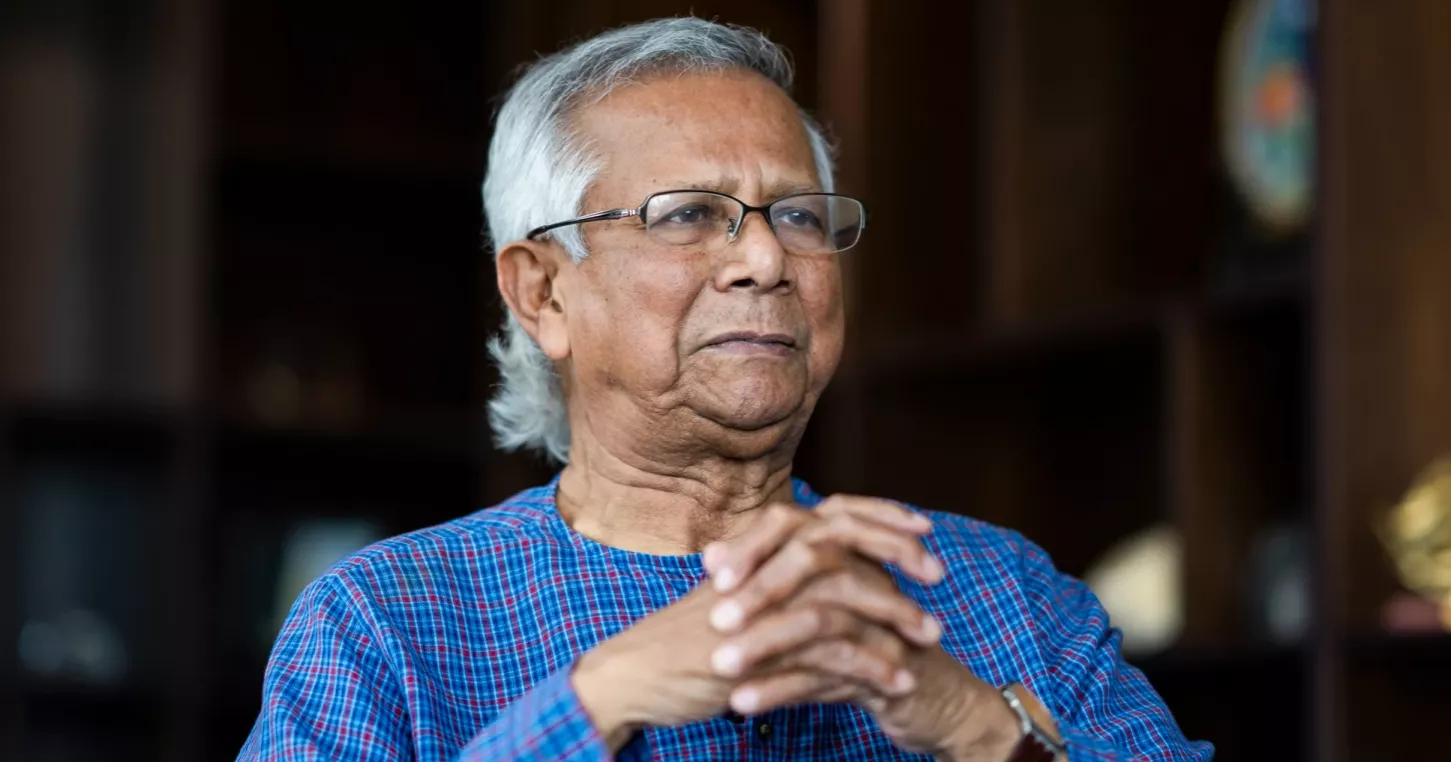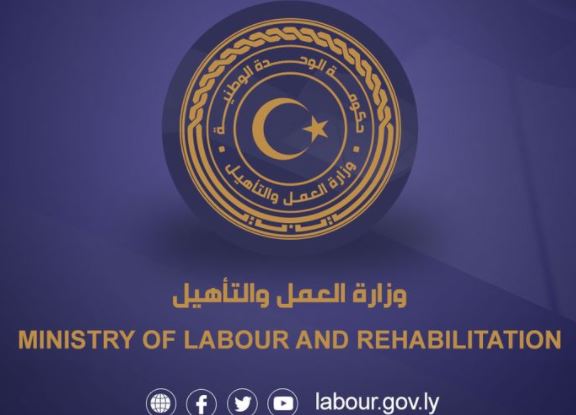Report on Human Rights and Sustainable Development Goals in Bangladesh
Advancing SDG 16: Peace, Justice, and Strong Institutions
Following the July Revolution, the Interim Government of Bangladesh has an opportunity to build effective, accountable, and inclusive institutions, a core objective of Sustainable Development Goal 16. Key actions are required to strengthen the rule of law, ensure access to justice for all, and guarantee responsive decision-making ahead of the 2026 elections.
Recommendations for Institutional Reform and Justice
- Ensure Accountability for Past Abuses: To fulfill SDG 16.3 (Promote the rule of law and ensure equal access to justice), perpetrators of serious abuses over the past fifteen years, including enforced disappearances and extrajudicial killings, must be held accountable. The International Crimes Tribunal (ICT) should be provided the legal framework, resources, and independence to conduct fair prosecutions adhering to international standards, with the military’s full cooperation. A moratorium on the death penalty is also recommended.
- Implement Security Sector Reform: In alignment with SDG 16.6 (Develop effective, accountable and transparent institutions), security institutions require significant reform. This includes disbanding the Rapid Action Battalion (RAB) due to its record of abuses and strictly delineating the powers of the Directorate General of Forces Intelligence (DGFI) to military intelligence with a clear legal mandate.
- Strengthen Legal Frameworks and Human Rights Bodies: To advance SDG 16.a (Strengthen relevant national institutions), the government should criminalize enforced disappearances in line with international standards and fully support the Commission of Inquiry on Enforced Disappearances. Furthermore, the National Human Rights Commission (NHRC) must be reformed in line with the Paris Principles to ensure its independence and effectiveness.
- Uphold Fair Legal and Political Processes: To support SDG 16.7 (Ensure responsive, inclusive, participatory and representative decision-making), ongoing arbitrary arrests and detentions must cease. All politically motivated cases, including those against Awami League members lacking credible evidence, should be reviewed and dismissed. The broad ban on Awami League activities under the Anti-Terrorism Act should be ended to ensure a return to multi-party democracy.
- Cooperate with International Justice Mechanisms: Full cooperation with the International Criminal Court’s (ICC) investigation into the situation in Bangladesh/Myanmar is essential for upholding international law and contributing to global efforts for justice under SDG 16.
Upholding Fundamental Freedoms in Line with SDG 16.10
Sustainable Development Goal 16.10 calls for ensuring public access to information and protecting fundamental freedoms. The Interim Government is urged to reform legislation and practices that have previously been used to restrict these rights.
Recommendations for Protecting Freedoms
- Reform Restrictive Legislation: Abusive laws that restrict freedom of expression, including the Cyber Security Ordinance 2025, the Anti-Terrorism Act, and the Special Powers Act, should be repealed or amended in line with international standards. The new Cyber Security Ordinance 2025 requires revision as it fails to meet these standards.
- Protect Data Privacy: The draft Personal Data Protection Ordinance and National Data Management Ordinance must be amended to adequately protect data privacy and guard against unchecked state surveillance, ensuring they are rights-based and reflect global best practices.
- Ensure Press Freedom: Journalists must be protected from arbitrary arrest, harassment, and violence. The government should pursue independent investigations into any attacks and implement recommendations from the Media Reform Commission that align with international standards for press freedom.
- Enable Civil Society Operations: In support of SDG 17 (Partnerships for the Goals), restrictions on civil society funding and operations should be lifted. The NGO Affairs Bureau and the Foreign Donations (Voluntary Activities) Regulation Act must be reformed to allow civil society to operate freely without burdensome oversight.
Addressing the Rohingya Refugee Crisis through a Multi-SDG Framework
The situation of over one million Rohingya refugees in Bangladesh requires an approach that integrates multiple Sustainable Development Goals, including those related to poverty, education, decent work, reduced inequalities, and peace.
Recommendations for Refugee Protection and Empowerment
- Protect from Forced Repatriation (SDG 16): Given that no part of Myanmar is currently safe, the Interim Government must prevent the forced repatriation of Rohingya refugees. Any return must be voluntary, safe, dignified, and sustainable.
- Enhance Livelihoods and Reduce Aid Dependency (SDG 1 & SDG 8): To combat poverty (SDG 1) and promote decent work (SDG 8), restrictions impeding refugees’ freedom of movement and access to livelihood opportunities should be reduced. This is critical for improving camp conditions and empowering refugees, especially amid aid cuts.
- Provide Access to Formal Education (SDG 4): To ensure inclusive and equitable quality education (SDG 4), Rohingya refugees should be granted access to formal education, which is crucial for their personal development and future prospects.
- Uphold Rights and Reduce Inequalities (SDG 10): By protecting refugees and improving their living conditions, Bangladesh can contribute to SDG 10 (Reduced Inequalities) by ensuring the rights and well-being of a highly vulnerable population.
Analysis of Sustainable Development Goals in the Article
1. Which SDGs are addressed or connected to the issues highlighted in the article?
- SDG 16: Peace, Justice and Strong Institutions: This is the most central SDG addressed in the article. The text focuses extensively on issues of human rights, accountability for abuses, security sector reform, rule of law, access to justice, freedom of expression, and the development of effective, accountable, and transparent institutions. The calls to end enforced disappearances, reform the judiciary and security forces, protect journalists, and ensure fair elections are all core components of SDG 16.
- SDG 10: Reduced Inequalities: This SDG is relevant through the article’s specific focus on the rights and protection of Rohingya refugees. By urging the government to protect this vulnerable and displaced population from forced repatriation and to improve their access to livelihoods and education, the article addresses the need to reduce inequalities and ensure the rights and well-being of marginalized groups.
2. What specific targets under those SDGs can be identified based on the article’s content?
- Target 16.1: Significantly reduce all forms of violence and related death rates everywhere. The article directly addresses this target by calling for an end to serious abuses such as enforced disappearances, extrajudicial killings, torture, and arbitrary arrests and detentions.
- Target 16.3: Promote the rule of law at the national and international levels and ensure equal access to justice for all. This target is identified through the demand to hold perpetrators accountable for past abuses through fair prosecutions in civilian courts like the International Crimes Tribunal (ICT). The call to cooperate with the International Criminal Court (ICC) and to criminalize enforced disappearances in line with international standards further reinforces this connection.
- Target 16.6: Develop effective, accountable and transparent institutions at all levels. The article explicitly calls for institutional reform. This includes disbanding the Rapid Action Battalion (RAB), limiting the powers of the Directorate General of Forces Intelligence (DGFI), and reforming the National Human Rights Commission (NHRC) to ensure its independence and effectiveness in line with the Paris Principles.
- Target 16.7: Ensure responsive, inclusive, participatory and representative decision-making at all levels. The article’s overarching goal is to help Bangladesh build “strong institutions needed to guarantee free and fair elections and guard against future backsliding.” The call to end the broad ban on the Awami League’s activities to ensure a “genuine multi-party democracy” directly relates to inclusive and representative political processes.
- Target 16.10: Ensure public access to information and protect fundamental freedoms, in accordance with national legislation and international agreements. This target is clearly addressed through multiple recommendations, including the repeal or amendment of restrictive laws like the Cyber Security Ordinance 2025, the protection of press freedom, the call to stop harassment of journalists, and the demand to lift restrictions on civil society funding and operations.
- Target 10.7: Facilitate orderly, safe, regular and responsible migration and mobility of people, including through the implementation of planned and well-managed migration policies. This target is relevant to the section on Rohingya refugees. The article urges the government to protect refugees from forced repatriation to an unsafe environment and to reduce restrictions on their freedom of movement, access to livelihoods, and education, which are key aspects of managing the situation of displaced populations responsibly.
3. Are there any indicators mentioned or implied in the article that can be used to measure progress towards the identified targets?
- For Target 16.1: The article implies progress can be measured by a decrease in the number of enforced disappearances, extrajudicial killings, cases of torture, and arbitrary arrests. The number of such ongoing cases would serve as a direct indicator.
- For Target 16.3: Implied indicators include the number of successful and fair prosecutions of individuals responsible for human rights abuses by the ICT, the formal adoption of an ordinance criminalizing enforced disappearances, and the level of cooperation provided to the International Criminal Court’s investigation.
- For Target 16.6: Progress can be measured by specific institutional actions: the official disbandment of the RAB, the enactment of laws and regulations that clearly delineate and limit the powers of the DGFI, and the successful reform of the NHRC to achieve compliance with the Paris Principles.
- For Target 16.7: An indicator would be the lifting of the ban on political activities of the Awami League and the successful administration of elections deemed free and fair by international observers.
- For Target 16.10: Measurable indicators include the repeal or amendment of specific laws mentioned (Cyber Security Ordinance, Anti-Terrorism Act, etc.), a reduction in the number of journalists arrested or attacked, and the removal of legal and administrative barriers to NGO funding and operations.
- For Target 10.7: Progress could be tracked by the number of refugees protected from forced return, the establishment of policies allowing refugees access to formal education and livelihood opportunities, and the easing of movement restrictions within refugee camps.
4. Create a table with three columns titled ‘SDGs, Targets and Indicators” to present the findings from analyzing the article.
| SDGs | Targets | Indicators (Identified or Implied in the Article) |
|---|---|---|
| SDG 16: Peace, Justice and Strong Institutions | 16.1: Significantly reduce all forms of violence and related death rates everywhere. |
|
| SDG 16: Peace, Justice and Strong Institutions | 16.3: Promote the rule of law at the national and international levels and ensure equal access to justice for all. |
|
| SDG 16: Peace, Justice and Strong Institutions | 16.6: Develop effective, accountable and transparent institutions at all levels. |
|
| SDG 16: Peace, Justice and Strong Institutions | 16.7: Ensure responsive, inclusive, participatory and representative decision-making at all levels. |
|
| SDG 16: Peace, Justice and Strong Institutions | 16.10: Ensure public access to information and protect fundamental freedoms. |
|
| SDG 10: Reduced Inequalities | 10.7: Facilitate orderly, safe, regular and responsible migration and mobility of people. |
|
Source: rfkhumanrights.org







